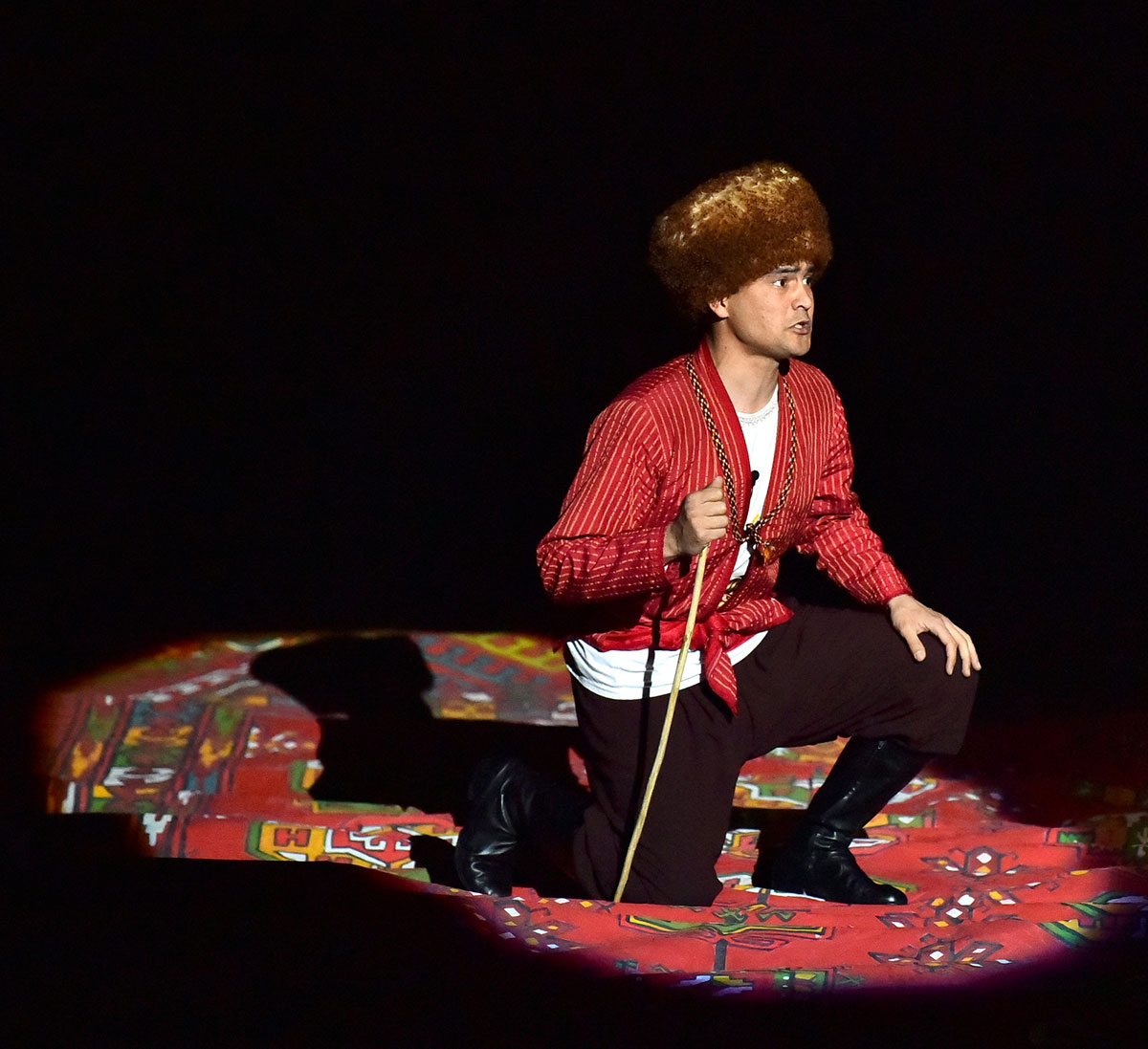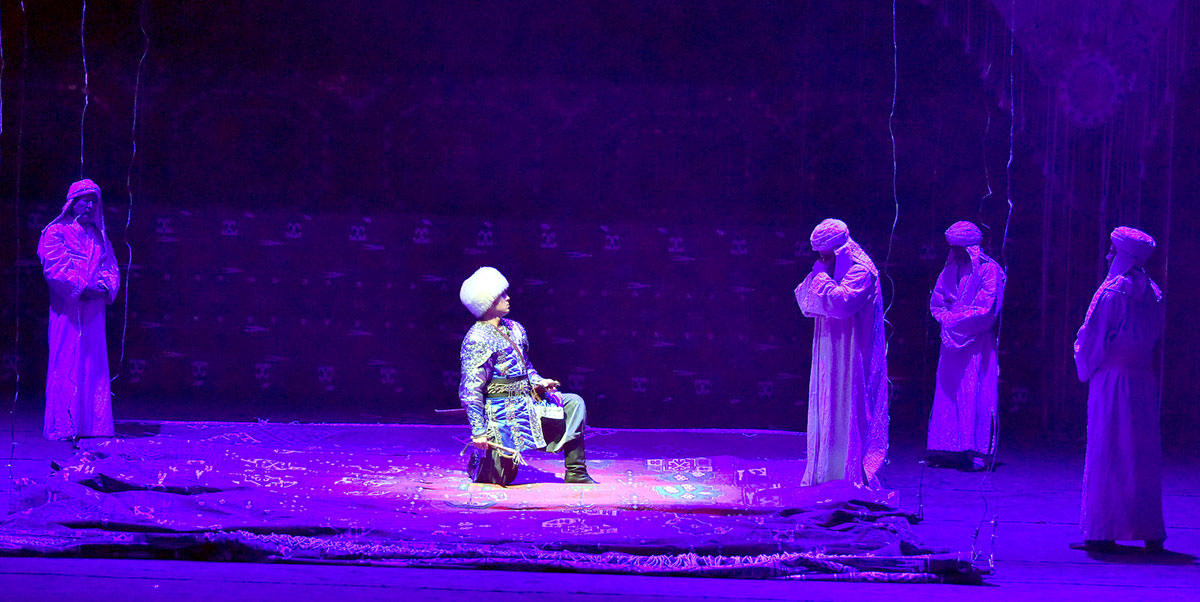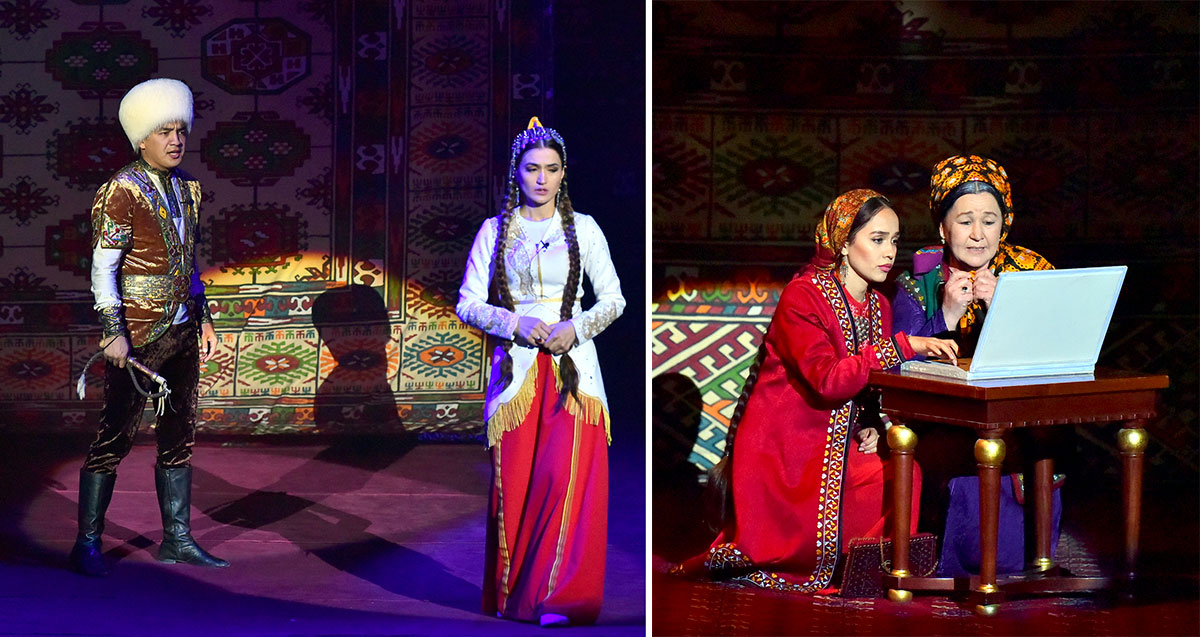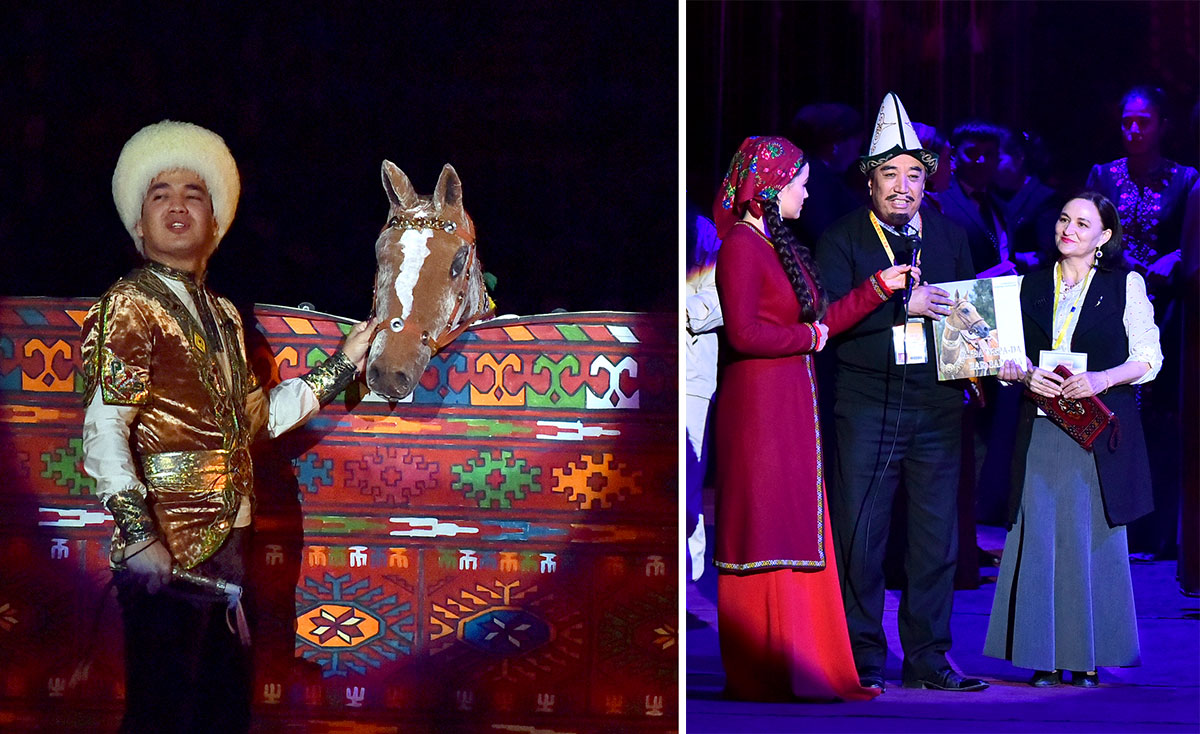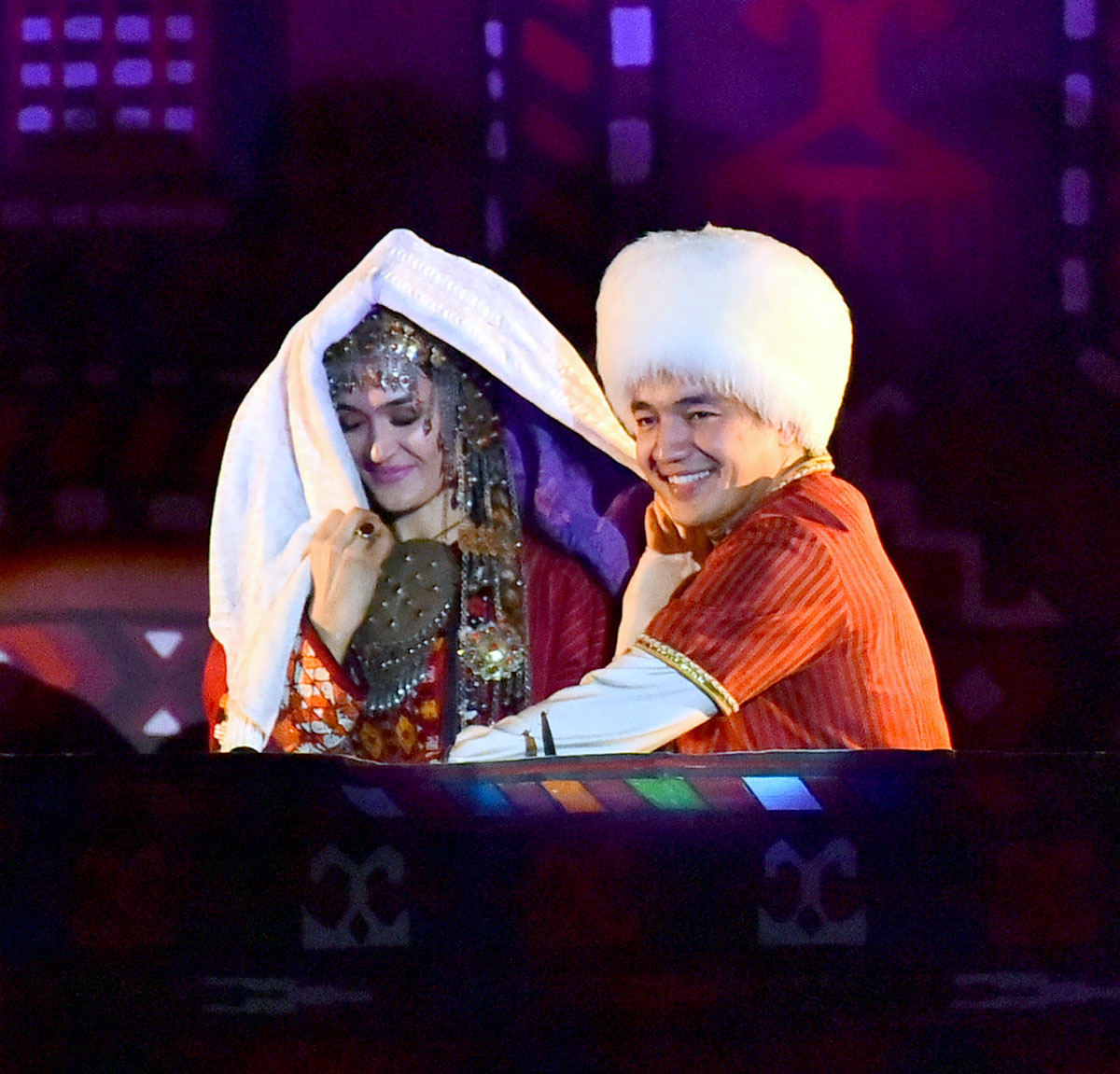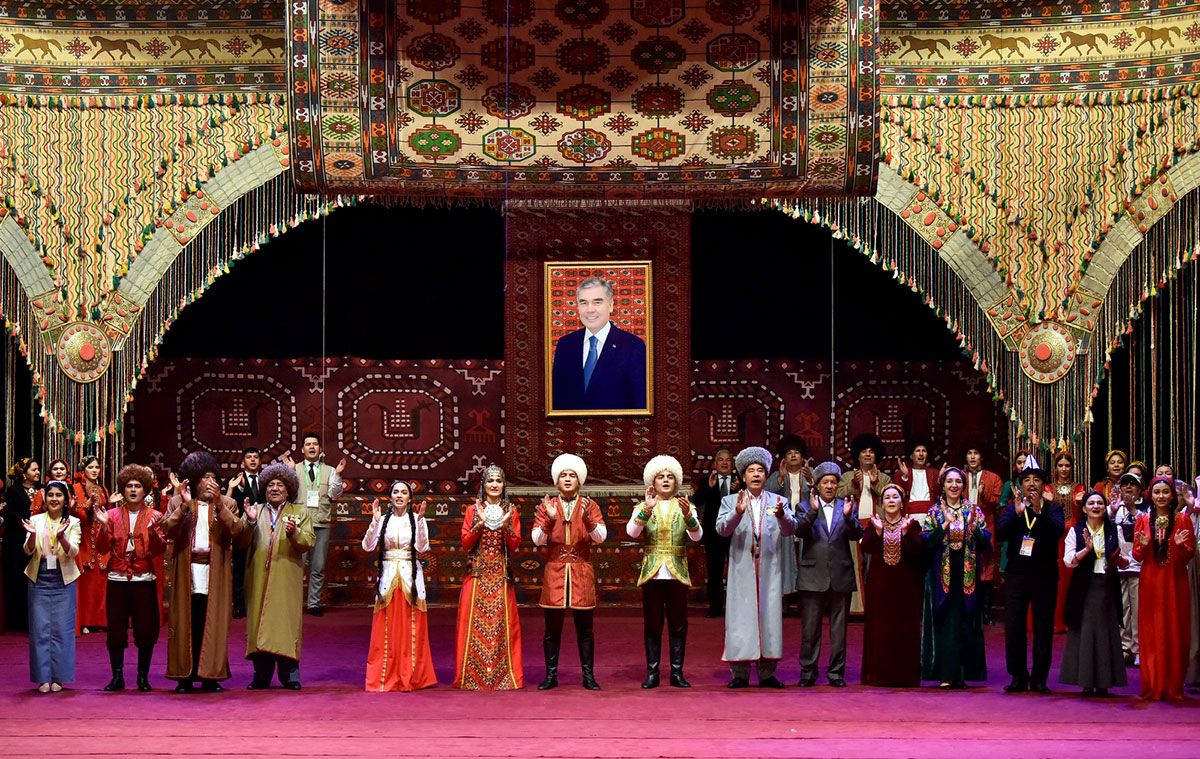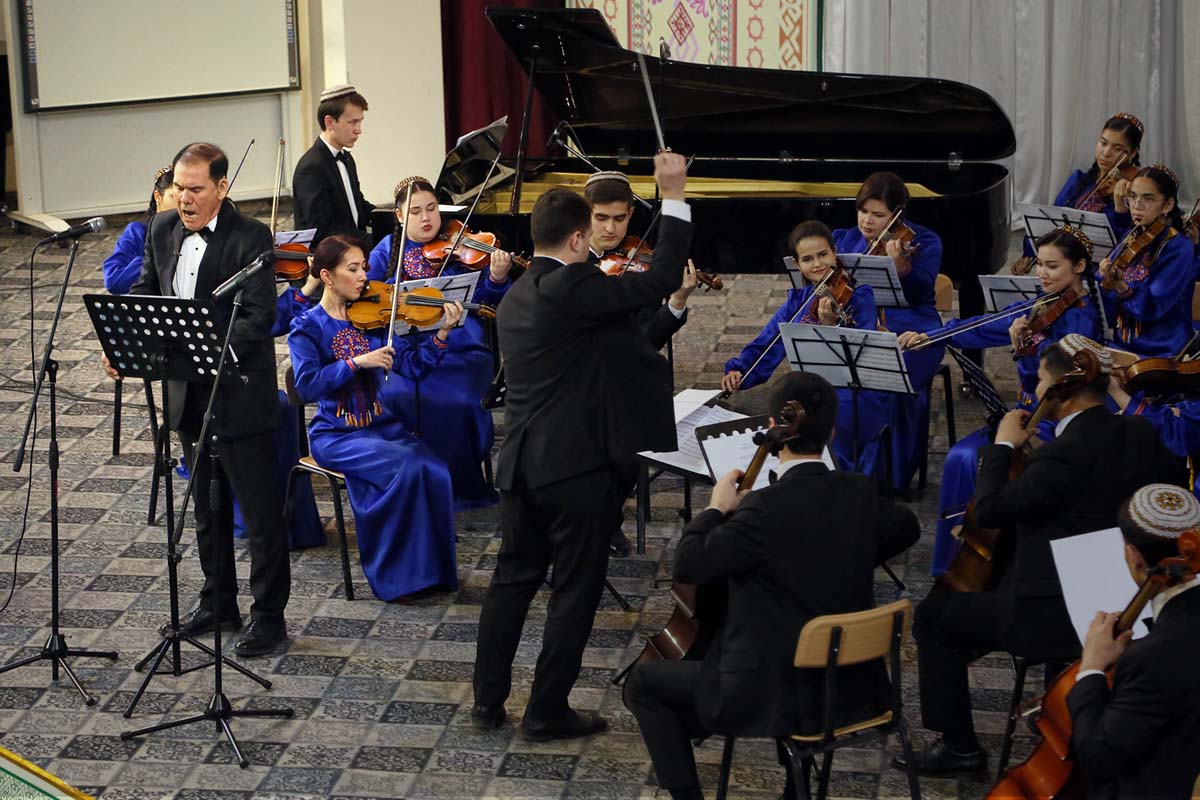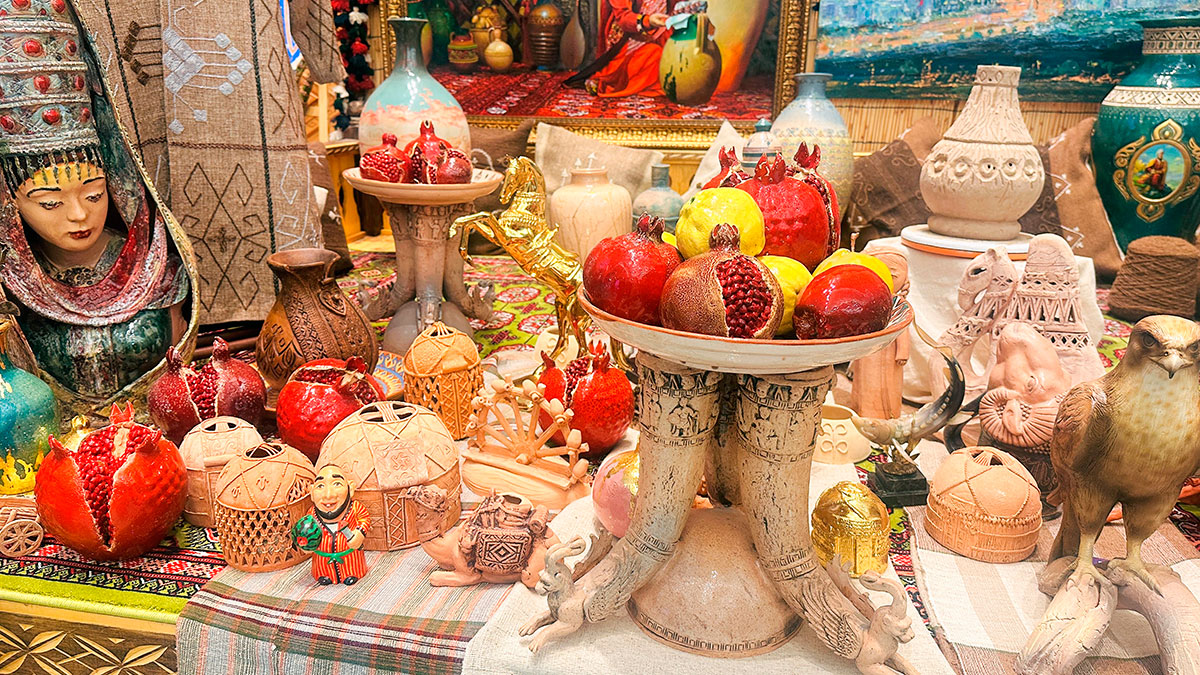… It is unlikely that those who attended the performance could have imagined that they would witness a breathtaking horse race and the stage would turn into a racetrack. Director of the adaptation, People’s Artist of Turkmenistan Kakajan Ashirov masterly and authentically brings the narrative to life on stage. It is the first time the authentic spirit of a horse racing event has been captured on the national stage with horses breaking into a gallop, overflowing emotions of fans, admiring foreign guests captivated by the light, elegant build, agility and quick bursts of speed of Akhalteke horses.
The horse racing scene transported the audience to the racetrack stands. Put right at the heart of the spectacular action, the amazed spectators were watching the drama of the race unfolding before their eyes with great excitement…
- After reading ‘The Horse: A Symbol of Loyalty and Happiness’ by our President, Kakajan Ashirovich tells, I felt a desire to turn the story of equestrienne Jennet and of her boundless love for Akhalteke horses into a stage production, whose premiere would be timed to coincide with National Turkmen Horse Day. We started to work on the play together with People’s Writer of Turkmenistan Govshutgeldy Danatarov.
We included a scene featuring Gerogly, who is visited by seven apostles in his dream, in the production to emphasize the continuity of the Turkmen nation’s spiritual traditions, to explain the Akhalteke horse’s historical-cultural phenomenon, and explore the inextricable connection and unique bonds between humans and horses.
Gerogly’s horse, Gyrat, is his close and faithful companion he can rely on entirely. Gyrat has saved Gerogly from danger and provided succor in times of need and hardship. When Gerogly is granted three wishes he uses them for the benefit of his loyal horse. Nothing proves Gerogly’s love for his horse better than his deed!
Let me remind you the plot of the wonderful story described in our President’s book. Fascinated by trick riding since childhood, Jennet becomes a brilliant stunt rider. Together with the Galkynysh National Equestrian Group she has performed in many countries around the world, earning recognition from fastidious audiences and winning prizes in international competitions. The dashing horsewoman spends much time with her horse.
But Jennet’s parents begin to ponder on their daughter’s future, and once her father says: ‘It is not considered proper for the girl of marriageable age to ride a horse.’ Jennet gives up her training sessions. Obeying her parents’ wish, she finds it very difficult to be separated from her four-legged friend.
The story has a happy, almost fairytale-like ending. How can it be otherwise? This is the story of the person who has found her calling. Jennet resumes her training sessions, when she marries Arslan Annamuradov, a trick rider from the Galkynysh Group. The talented couple are now raising two lovely children.
- Working on the play, Govshutgeldy Danatarov and I tried our best to make it as true to life as possible. Only the name of the lead character was changed to Altyn.
- Kakajan Ashirovich, your new work has left us with the impression that we witnessed a sincere and meaningful dialogue between humans and horses. The narrative is imbued with philosophical thoughts, while the plotlines do not contradict each other. Au contraire, they harmoniously correlate with the central theme of the book.
- I am delighted to hear that the play produced this effect on you, because I have deep reverence for Akhalteke horses, and this theme holds an important place in my professional career. If you recollect, I played the main character in the film ‘My Friend Melekush’, a young man, Alty, who has a great affection for a horse named Melekush and makes every effort not to let his equine friend be put up for public auction and be taken abroad.
- What sets your theatrical productions apart is that you always use the stage space on such a grand scale that plays rather resemble cinematic adaptations.
- The theater is a creative laboratory for me, a medium combining many art forms. And cinematic elements help to increase the dramatic intensity on the stage, to create richly diverse and dynamic narratives, and to add depth and drama to stage sets. In collaboration with production designer, Honored Art Worker of Turkmenistan Maksat Amanklychev, music director Magtymguly Saparov, and choreographer Taisia Alieva we worked to keep the production authentic, to emphasize its meaningful whole and scale.
The production boasts the talented cast: Dilshat Melyaeva, Begench Garryev, Shemshat Kasymova, Khezret Ovezov, Sokhbet Serbazov, Aman Ataev, and Jennet Poltaeva, whose sparkling performance helped to illustrate the play’s central concept.
‘The Horse: A Symbol of Loyalty and Happiness’ is the fifth stage adaption of works by our President. I would like the production, which combines history and modern life, traditions and worldviews, pathos and drama, folk wisdom and philosophy, love and moral values, to be a perfect gift and a special treat for theater enthusiasts ahead of National Turkmen Horse Day.




